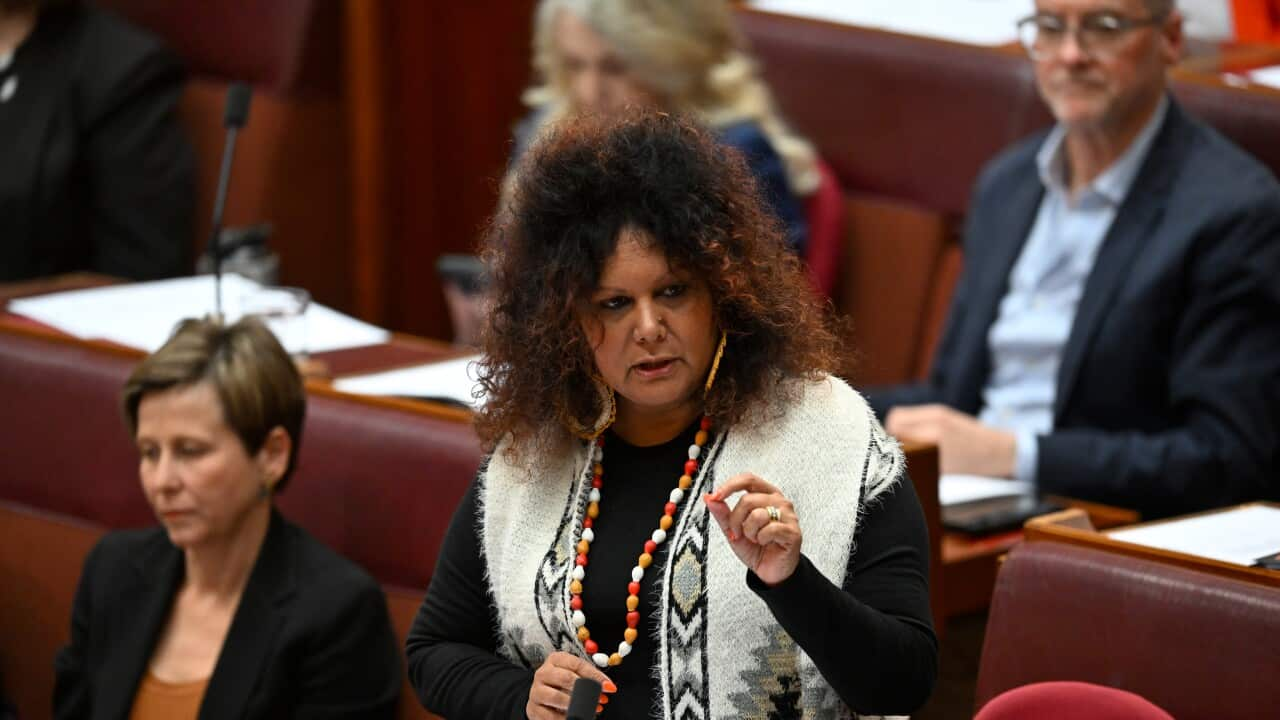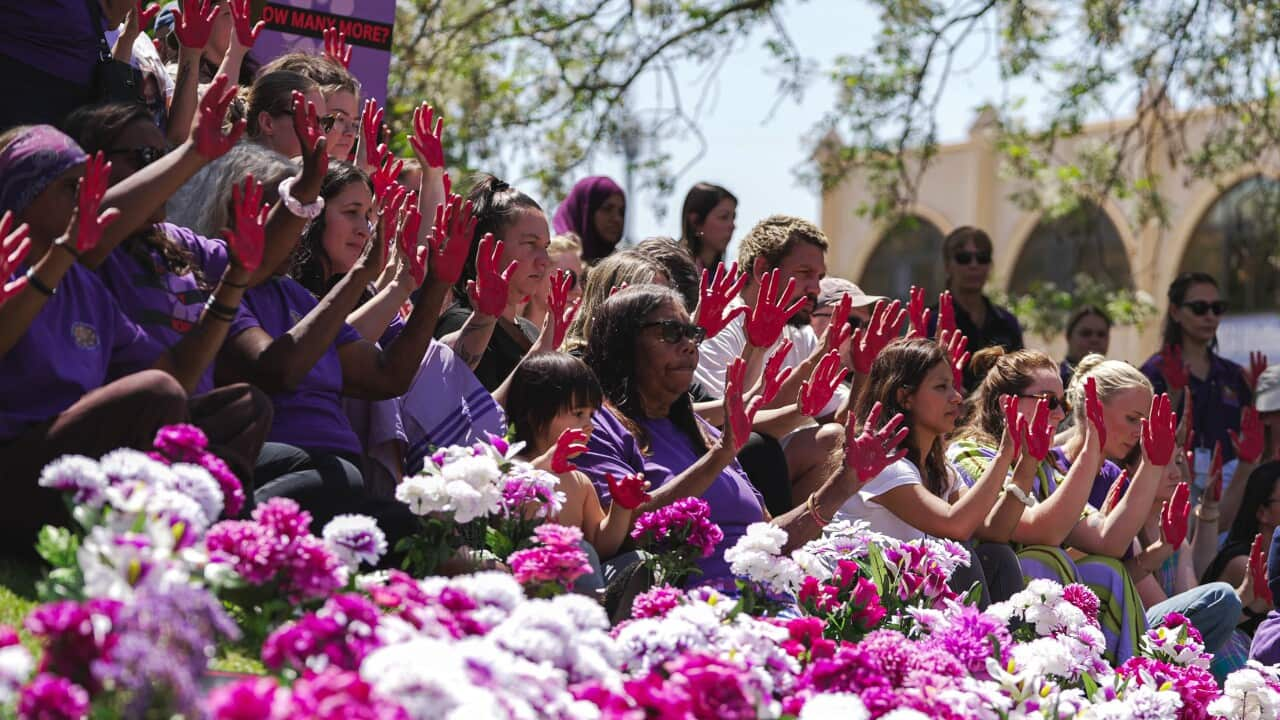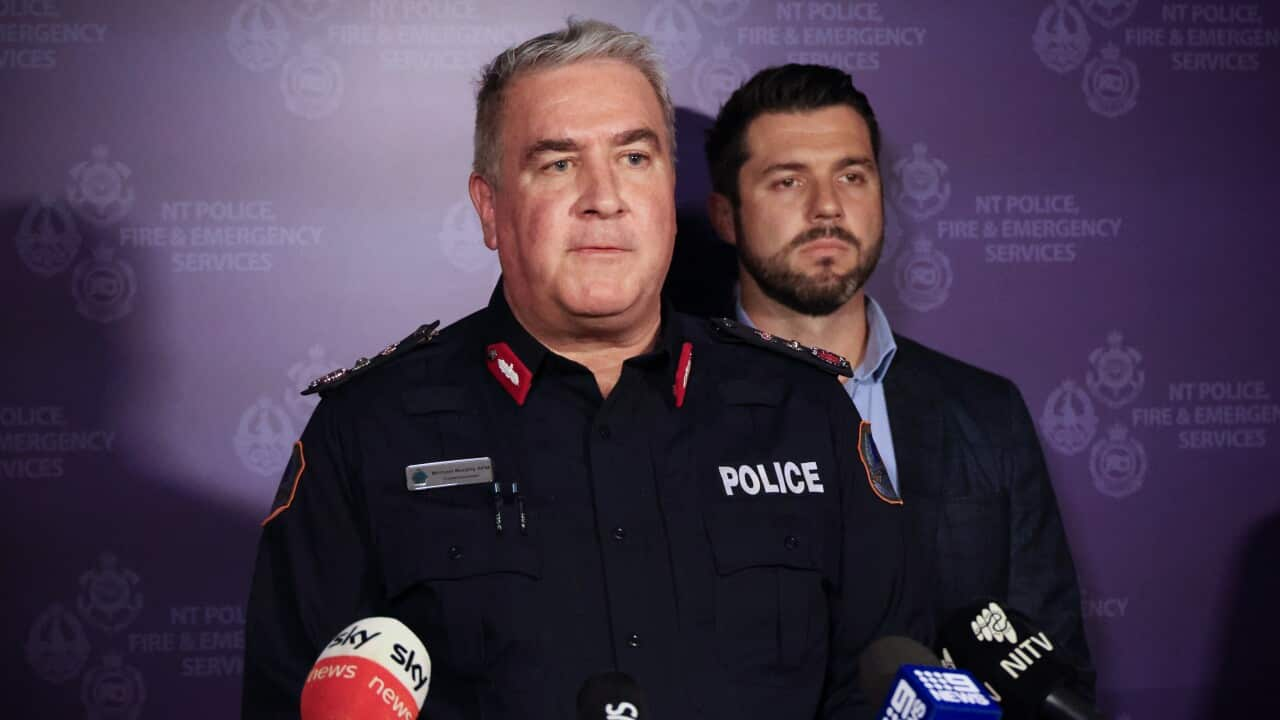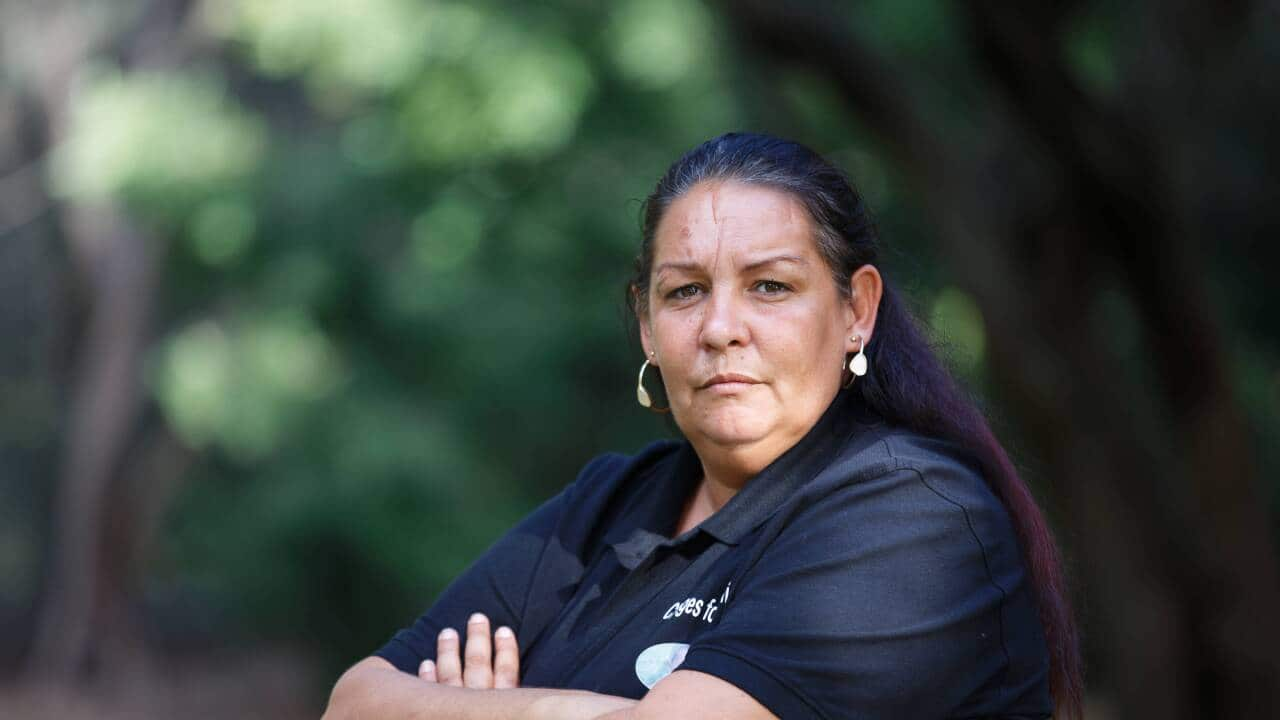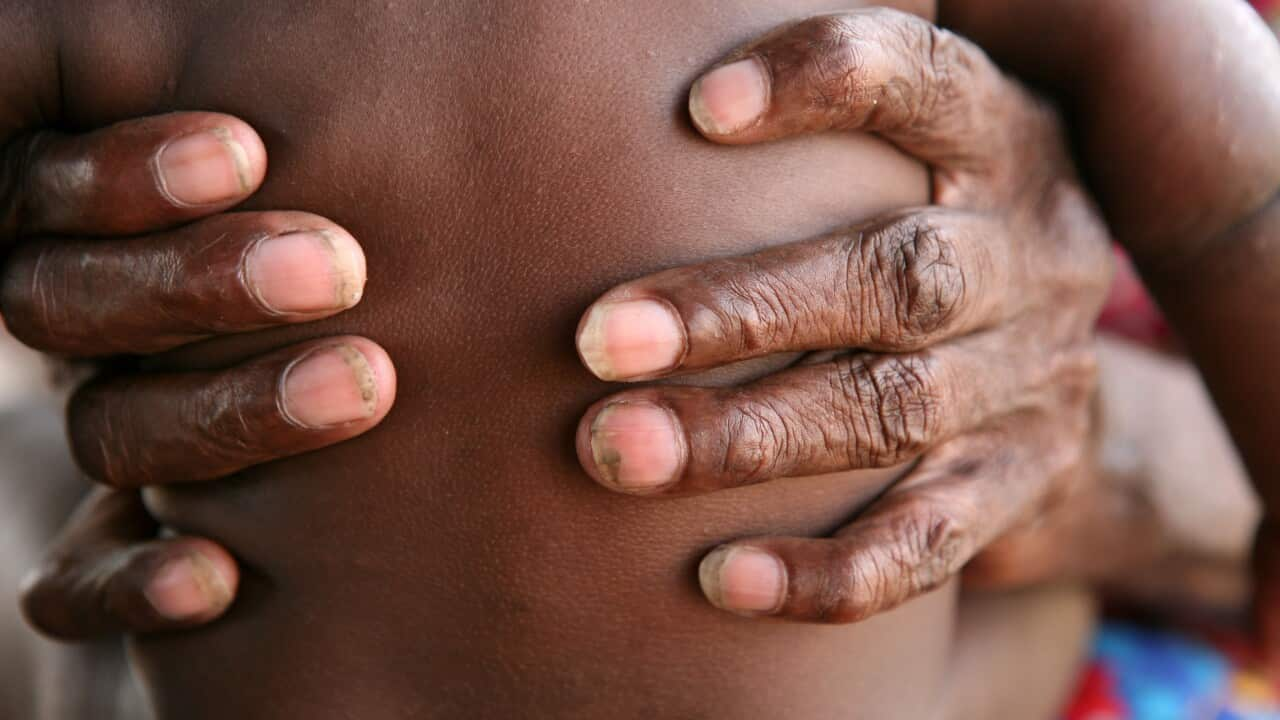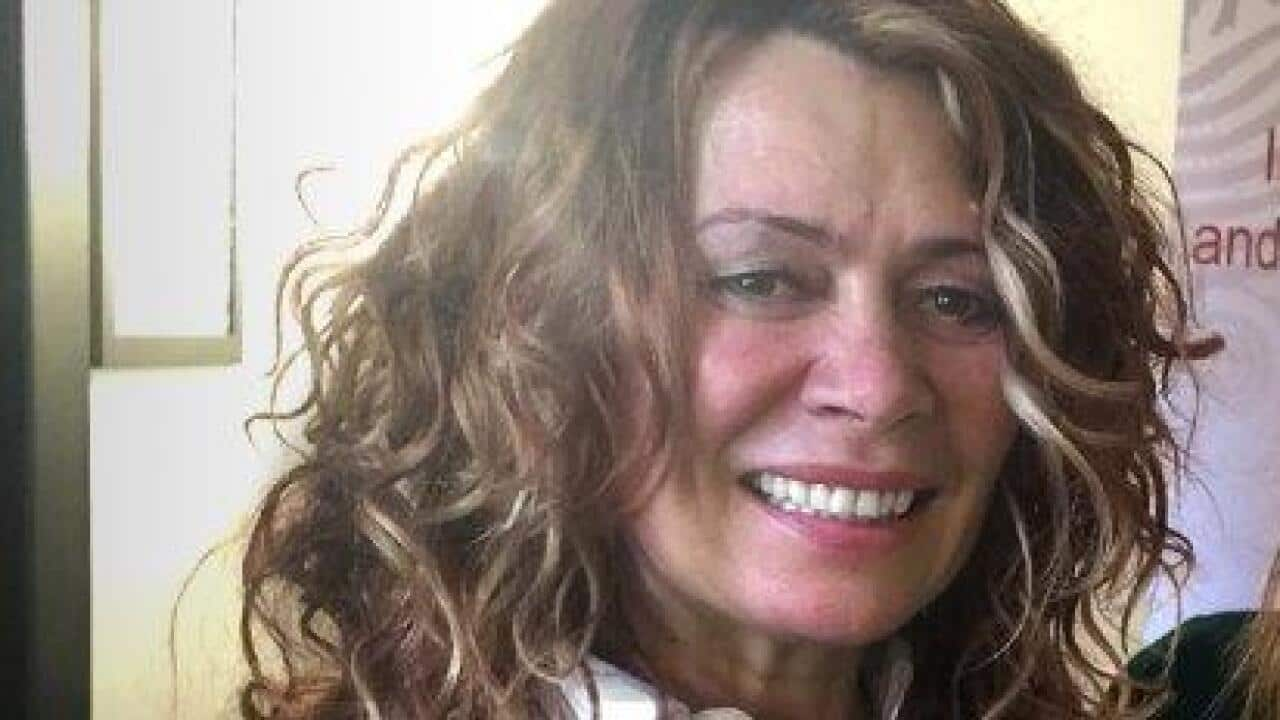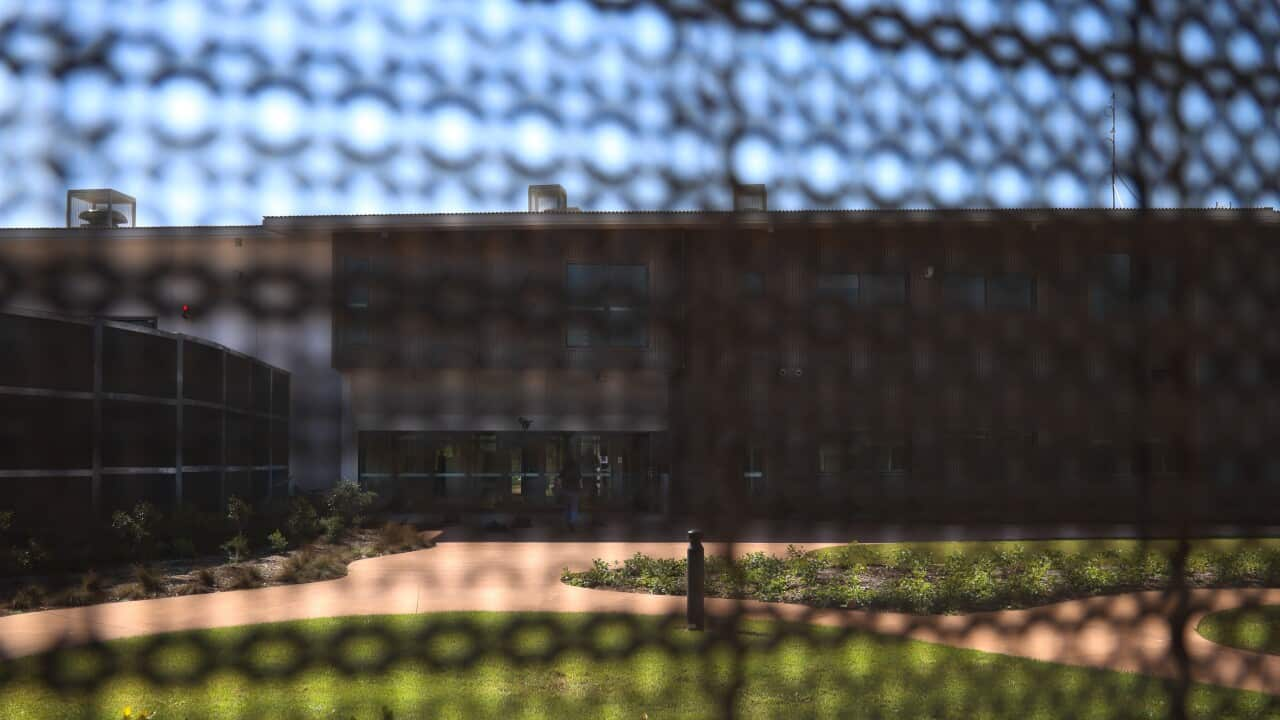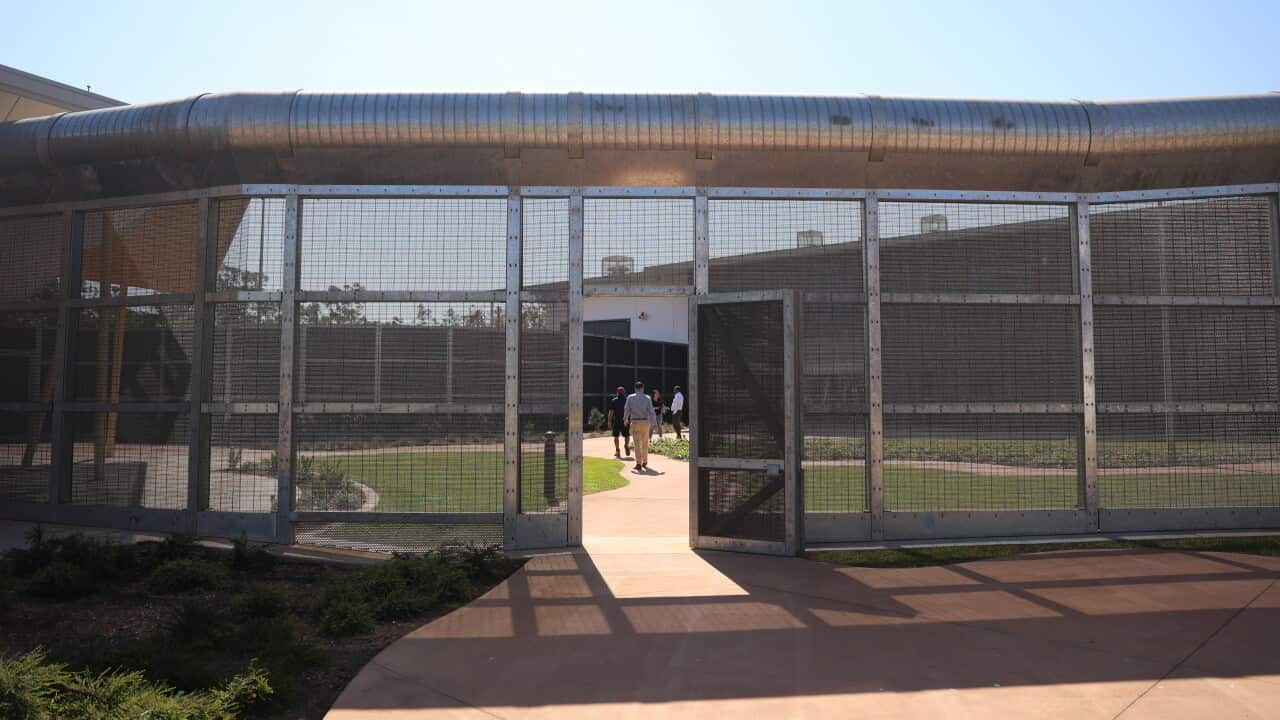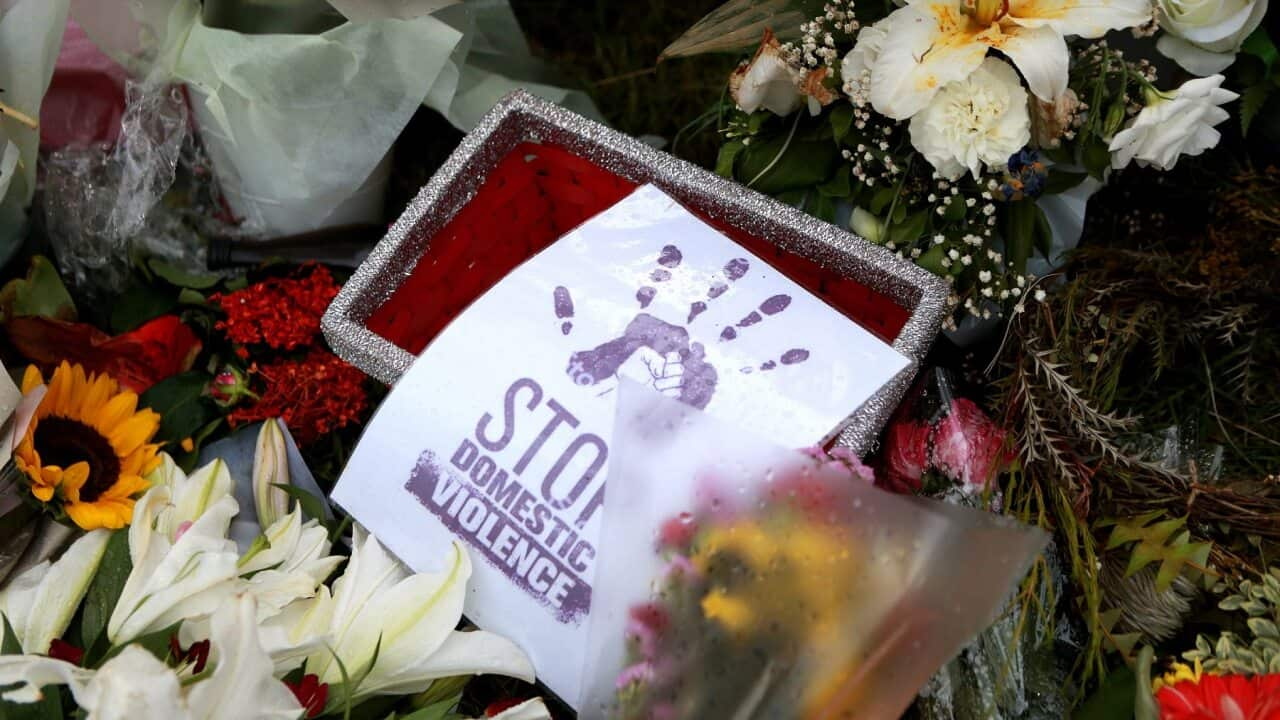"Stop the violence."
After the Northern Territory Coroner handed down her findings into the deaths of four Aboriginal women due to domestic violence, advocates sent that simple message to politicians, pleading for action.
On Monday, after more than a year's investigation, Coroner Elisabeth Armitage released her findings in the inquest about Miss Yunupingu, Ngyego Ragurrk, Kumarn Rubuntja and Kumanjayi Haywood, who were all killed by their partners.
On the same day in the Senate, Minister for Indigenous Australians Malarndirri McCarthy tabled the government response to the Inquiry Report into .
In 2018, Kumarn Rubuntja travelled to Canberra from her tiny community of Antepe Camp, near Alice Springs, one of a group of women who came to Parliament House, to speak out about the murders of First Nations women, with Senator McCarthy and Linda Burney, the then-Minister for Indigenous Australians.
"Ms Rubuntja had never been to Canberra before but that didn’t stop her speaking out for victims of family, domestic and sexual violence," Senator McCarthy said.
"Her message – stop the violence.
"Three years later Ms Rubuntja was murdered by her partner.
"She was repeatedly and deliberately run over."
'Not just numbers'
First Nations women experience disproportionately high levels of violence across the country - and the statistics are the most stark in the NT.
Nationally, First Nations women are seven times more likely to be homicide victims, and of those women, 75 per cent are killed by a current or former partner.
First Nations women are 33 times more likely to be hospitalised due to family and domestic violence than non-Indigenous women.
"These women are not just numbers and statistics," Senator McCarthy said.
"They were daughters, sisters, mothers, aunties, grandmothers, matriarchs of our communities.
"I wish to acknowledge all First Nations women and children whose lives have been cut short through horrific acts of violence, and those who are missing."
The coroner made 35 recommendations, including better funding for frontline services; targeted training for police and health workers; a peak anti-violence body; investing in Aboriginal interpreters; evidence-based alcohol intervention strategy and developing intensive early-intervention strategies to help children who are involved in domestic, family and sexual violence (DFSV).
Men's violence against [Indigenous] women is the responsibility of the whole country, and an impact of colonisation
Holly Gurruwiwi, a member of the lived experience advisory council for DFSV, welcomed the recommendations, particularly training for first responders.
"When you turn up to a domestic violence call out, you're not going to see us on our best days - but that doesn't mean we're not humans," she told NITV.
"It doesn't mean we don't have hearts and hopes and dreams, and it doesn't mean that we're not someone's daughter or sister or mother.
"And so, whilst the statistics are bad, what I really need everyone to understand is that the numbers are human lives, and so education is the way to bridge the gap of of understanding."
Regan Mitchell, head of Aboriginal and Torres Strait Islander strategy at violence prevention organisation Our Watch, said the inquest provides an opportunity to understand the systemic failings that surrounded the women's murders.
"Men's violence against Aboriginal and Torres Strait Islander women isn't a problem for Aboriginal and Torres Strait Islander people to solve on their own, it's the responsibility of the whole country, and is an impact of colonisation," she said.
"It's also really important to remember that a lot of perpetrators that are abusing and being violent to our women are from men from all backgrounds.
"So it's really important that this is a national responsibility and every single one of us has a part to play.
"And these murders are not inevitable, they're preventable."
'Silence' around national epidemic
Dr Chay Brown, DFSV researcher and co-coordinator of the Tangentyere Youth Safety Group, told NITV that in the inquest the coroner had put together aspects of the four women's lives and exposed systemic problems.
"A light has been shone on the completely unacceptable rates of domestic, family and sexual violence here in the NT, the highest rates in the country by a very long way, amongst the highest rates in the world," she said.
"And yet we hear absolute silence from the rest of the nation, including from our leaders, about the scale of this epidemic and we see no resourcing, no funding, that can help us stem the tide."
Dr Brown, who also gave evidence at the Senate inquiry into Missing and Murdered First Nations Women and Children, said neither the NT or federal government was providing enough support.
"Already this year, in the NT, we've had eight more women lost to domestic, family, sexual violence," she said.
"One life is too many.
"The devastation that it causes families, whole communities is too much.
"The time for change is now and we need an urgent response."
Stream free On Demand

Ashlee Donohue - Stop The Violence
episode • Living Black • Current Affairs • 28m
episode • Living Black • Current Affairs • 28m
, Domestic, Family and Sexual Violence Commissioner, said she hoped that the coroner's work will have an impact and the rest of the country will stand up and listen and learn.
“Absolutely there is no question that the media does not cover First Nations women's deaths in the same way as non-Indigenous women," she said.
“Some of it is racism, some of it is a lack of understanding."
Cindy Torrens, chief executive of the North Australian Aboriginal Family Legal Service (NAAFLS), which represented two of the families at the inquest, said they were heartened by the recommendations.
"We remember these women as much-loved mothers, sisters, daughters, and friends who are missed deeply every day by the people who loved them," she said.
"NAAFLS will now start the process of sensitively informing our clients of the coroner’s findings in the hope they can then begin to heal from their unimaginable loss."
NT government says it won't 'rush' response
NT Minister for Prevention of Domestic Violence Robyn Cahill said the government will spend $180 million over five years to respond to DFSV.
“The CLP Government will comprehensively review today’s Coronial recommendations into the tragic deaths of four Aboriginal women at the hands of their partners,” she said.
“This inquest began 17 months ago, and it is critical we do not rush our response and take the time to work through it and engage with stakeholders.
“As an immediate response to preventing domestic violence, the ‘Reducing Crime’ package we introduced in the first sittings of Parliament have already been assented into law, which includes a presumption against bail for serious violent offenders.”
The Coroner said the NT cannot arrest its way out of an epidemic on DV because it is fundamentally a social problem, which the criminal justice system alone cannot fix.
Senator McCarthy said everyone has a role in stopping violence.
"All governments, all communities, all Australians, can and must do more to put a stop to this senseless epidemic of family violence in this country," she said.
"In the words of Ms Kumarn Rubuntja and countless other First Nations women: 'Stop the violence'.”
If you or anyone you know is experiencing domestic or family violence, you can contact police on 131 444 or in an emergency call 000. You can also report anonymously through Crime Stoppers on 1800 333 000.
Support services for those affected by domestic violence are available, including 1800RESPECT (1800 737 732) and Lifeline (13 11 14).
